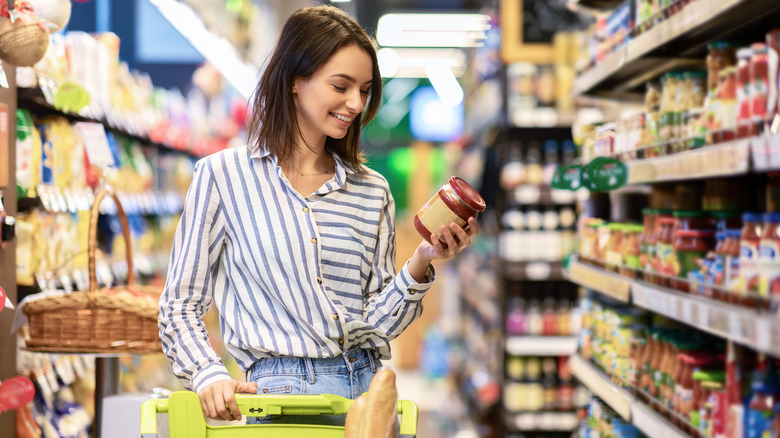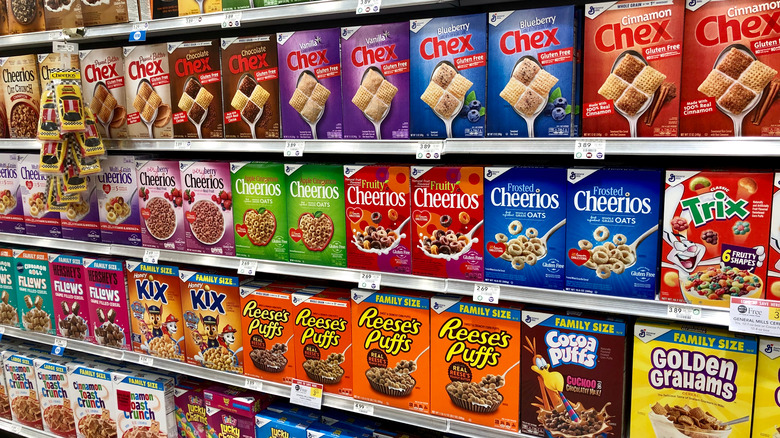How Inflation Is Changing The Way We Shop For Groceries
If you've paid attention to the news in the past year or so — or even set foot inside a supermarket — then you're probably aware things like the pandemic, supply chain issues, and labor disputes have been causing the price of many foods to skyrocket (via CNN). (Unfortunately, things are likely to get worse before they get better, as the USDA recently announced its predictions for the rest of 2022 and prices are expected to continue to rise.) Add on the rising price of gasoline causing monthly bills to creep higher, and you can be assured that people are considering making some adjustments to save money. When it comes to shopping for food, Americans are changing their habits not only to keep costs down, but also because they simply can't find some items at their local grocery store.
As explained by the Wall Street Journal, shoppers are no longer as loyal to specific brands as they once were, prioritizing lower-priced versions of foods, as well as versions that are consistently available. The outlet shares that, according to a survey conducted by grocery chain Kroger, more than 90% of consumers will — understandably — choose another brand or item if their go-to isn't stocked. Even big-name brands (the Journal names Tyson and Tropicana, in the case of one Michigan-based grocery chain) have lost customers to more readily available competitors.
Some companies are using this to their advantage
While these changing buying habits are likely causing some companies to panic as they lose customers, other, perhaps less popular brands are trying to take advantage of the situation by consistently being able to keep their products stocked. The Wall Street Journal reports J.M. Smucker, for example, the maker of Jif peanut butter and Folgers coffee, has been better able to keep its products widely available and has been outperforming competitors as a result. Its chief commercial and marketing officer Geoff Tanner told the Wall Street Journal: "There's more to get if you can outperform."
But not every company is concerned. Kellogg, for example, which faced a cereal shortage due to supply chain issues and an employee strike, is certain it will regain lost customers when able to meet demand. Steven Cahillane, Kellogg's chief executive, assured listeners on an earnings call that took place on Feburary 10, "We will see market share restoration." The company plans to focus on specific, high-performing brands first, expecting to begin bouncing back in the second half of 2022.

